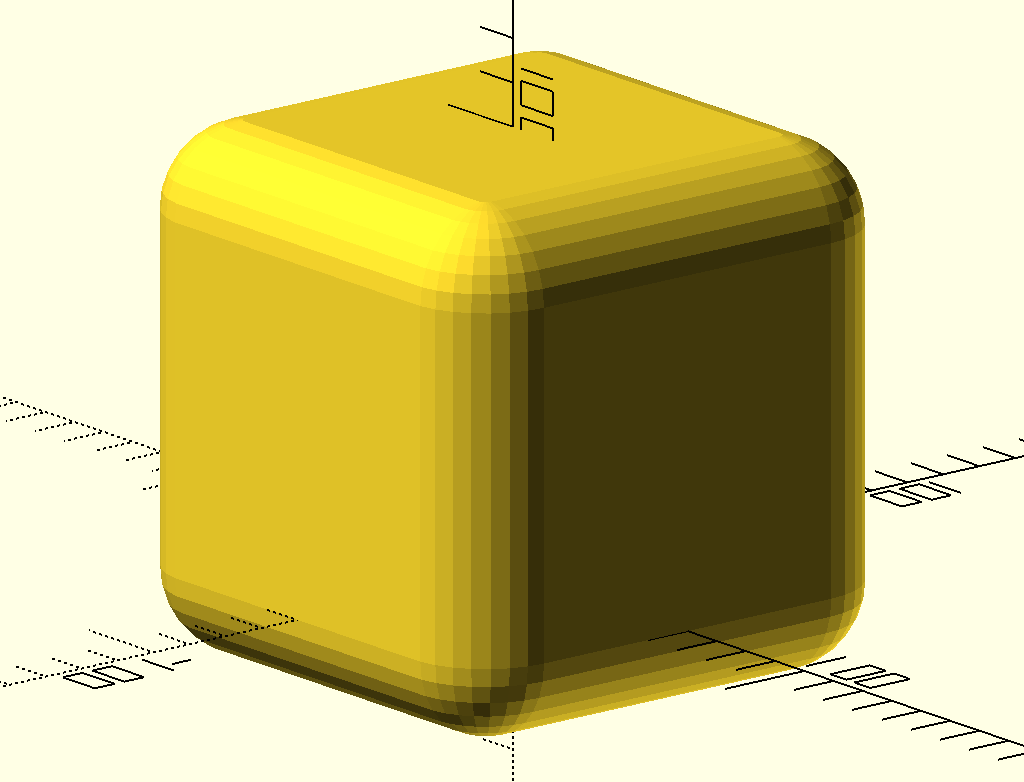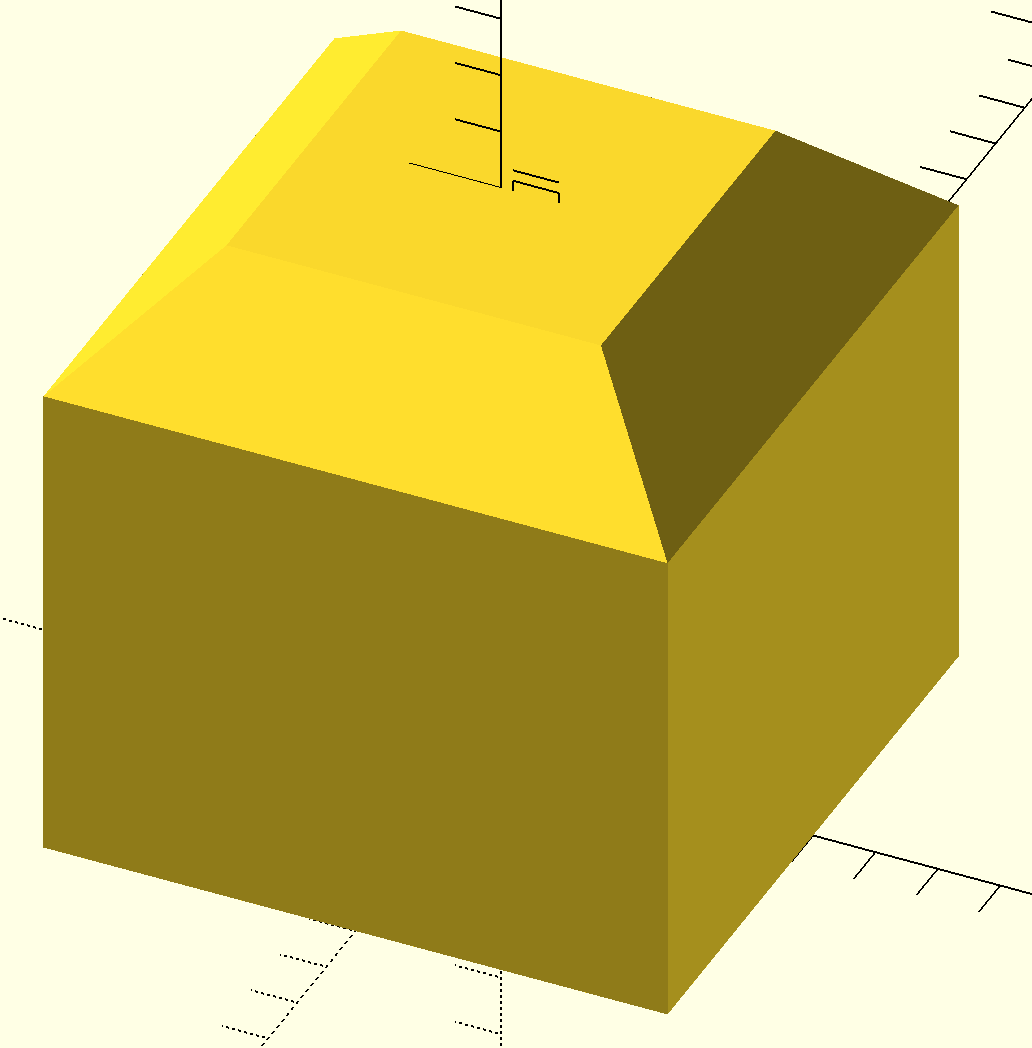- 3 Posts
- 19 Comments
It doesn’t sync to homeassistant, but I use a Xiaomi scale with openScale off of F-Droid. There’s a few different scales supported: https://github.com/oliexdev/openScale/wiki/Supported-scales-in-openScale
IMO, the best free option is https://freedns.afraid.org/. The biggest downside of that one is that you have to login a couple times a year (IIRC?) to keep it active. I actually still use this even though I have a paid domain, I just CNAME my real domains to the afraid dynamic name. That was easier than changing the config every time I become unhappy with my domain registrar and have to reconfigure everything after swapping.
Less commercial interest means only hobby level development
Podman is developed by RedHat: https://github.com/containers/podman/graphs/contributors
Unfortunately, no. Samba needs a different label. Doing that relabels things so that only containers (and anything unrestriced) can access those files.
IMO, yes. Docker (or at least OCI containers) aren’t going anywhere. Though one big warning to start with, as a sysadmin, you’re going to be absolutely aghast at the security practices that most docker tutorials suggest. Just know that it’s really not that hard to do things right (for the most part[1]).
I personally suggest using rootless podman with docker-compose via the podman-system-service.
Podman re-implements the docker cli using the system namespacing (etc.) features directly instead of through a daemon that runs as root. (You can run the docker daemon rootless, but it clearly wasn’t designed for it and it just creates way more headaches.) The Podman System Service re-implements the docker daemon’s UDS API which allows real Docker Compose to run without the docker-daemon.
If anyone can tell me how to set SELinux labels such that both a container and a samba server can have access, I could fix my last remaining major headache. ↩︎

 5·2 years ago
5·2 years agoAs far as I’m aware something like that isn’t really possible.
- it would prevent one person from making multiple fake accounts
How do you define ‘a person’ and how do you ensure that they only have one account? Short of government control of accounts, I don’t think you can really guarantee this and even then there’s still fraud that gets past the current government systems.
Then, how do you verify that the review is coming from the person that the account is for?
IMO, we’d all be better off going back to smaller scale social interactions, think ‘social media towns’ you trust a smaller number of people and over time develop trust in some. Then you can scale this out to more people than you can directly know with some sort of web-of-trust model. You know you trust Alice, and you know Alice trusts Bob, so therefore you can trust Bob, but not necessarily quite as much as you trust Alice. Then you have this web of trust relationships that decay a bit with each hop away from you.
It’s a rather thorny problem to solve especially since for that to work optimally you’d want to know how much Alice trusts bob, but that amounts to everyone documenting how much they trust each of their friends, which seems socially… well… difficult.
Though the rest is actually easy™:
- reviews wouldn’t be suppressed or promoted by paid algorithms
- the algorithm WOULD help connect people to items they are interested in. But maybe the workings of it would be open source, so it can be audited for bad acting.
You do what the fediverse does, you have all the information available to everyone, then you run your own ‘algorithm’ that you wrote/audited/trust. The hard part is getting others to give away access to all ‘their’ data.

 3·2 years ago
3·2 years agoYep, it’s called a trackpoint: https://lemmy.world/post/7943240

 191·2 years ago
191·2 years agoDefense in depth. If something escapes the container it’s limited to only what’s under that user and not the whole system. Having access to the whole system makes it easier for malware to hide/persist itself.

 331·2 years ago
331·2 years agoIf your distro offers it, rootless podman + podman system service is the best setup, IMO. That will give you a
dockercommand that is 1-to-1 compatible with docker and lets you use tools like docker-compose that expect a docker service socket. Then you can just follow tutorials that only explain things for docker.

 7·2 years ago
7·2 years agoThat’s not really possible with docker TBH, and I say that as a diehard Podman advocate. Docker, the tooling that you install with your package manager, is open source. Sure they have windows and mac desktop stuff that isn’t open, but it’s not like you’re self-hosting with that, right?
Plus there’s always Podman to switch to, which can be a (mostly) drop-in replacement, if you want something with a more trustworthy provenience.

 5·2 years ago
5·2 years agoFor rounding, you can do the extrusion, but with it a bit smaller in every dimension, then
minkowskiwith a sphere (or a different shape if you don’t want all the edges rounded), but it’s tricky to get right:module shape() { square(80, center = true); } minkowski() { linear_extrude(80) shape(); sphere(r = 20); }

 5·2 years ago
5·2 years agoThere’s lots of ways to round things or chamfer things. Coming from an extruded shape, a basic chamfer is pretty easy, you can do two different extrusions, one a bit shorter than your final piece and one full height, but
offsetinward a bit, and then hull them together:module shape() { square(10, center = true); } hull() { linear_extrude(8) shape(); linear_extrude(10) offset(delta = -2) shape(); }
Though, because of the hull, this will only really work with fully convex shapes. Doing this for shapes with concave features is harder.

 31·2 years ago
31·2 years agoI had an AMD Phenom-II era motherboard that claimed it would be able to do that. OP, you might be able to find an old NIC/mobo that could do this for cheap.

 2·2 years ago
2·2 years agoAh, nice. I think that’s exactly what I was trying to describe. Thanks for the suggestion!
Though, I think the git forge ‘backend’ + “Static CMS” frontend seems a bit more featureful and slick. I think I’m going to keep going down that path instead for now. Good to have a backup of exactly what I originally thought I wanted though.

 1·2 years ago
1·2 years agoGotcha, I’m trying to find something that doesn’t require me to use a local editor. I want to give myself as smooth of an opportunity as possible to write small thoughts. That’s my current setup and even that little bit of friction seems to keep me from writing. (Or that’s my current excuse anyway…)

 2·2 years ago
2·2 years agoNifty. At first blush just making a static clone of a dynamic site doesn’t feel as elegant as using a code forge editor, but I’ll keep that idea in mind if I find the editing experience (images and whatnot) to be too clunky with the gitea suggestion.

 5·2 years ago
5·2 years agoI’d personally like to not depend on infra like github, but I hadn’t considered just using the web UI of a code forge. That’s a good idea, I’m going to try that and see if I like it, thanks!
(Still interested in other suggestions if others know of things that are more fit for purpose, tho.)

 2·2 years ago
2·2 years agoDo you just use the gitea web editor for that? (I assume it has one right?) Does it provide a nice markdown-aware editor?
Post your actual configs and logs or people will only be able to guess. (Censor any secrets.)
My guess: It’s probably your nginx config.
Why are you using 0.19.4? That version is over a year old.